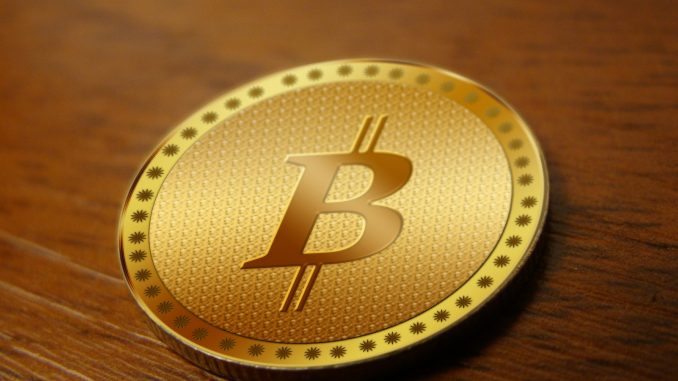
Recently, I have talked to some people about bitcoin or other digital currencies. I realized that many people do not quite understand it and mistake bitcoin (which would be analogous to gold) for government money (which is, deep down, a government bond).
To avoid having to write cryptocurrency all the time, I will refer as bitcoin the collective of all cryptocurrencies.
How does it works?
Well, first of all, I’ll apologize to my techie friends because I will have to take a poetic license to simplify the explanation, without prejudice to the main goal, which is to assess the impact on people’s lives. It will be an explanation of how it works, in a few lines: the generation of new bitcoins is made on the basis of accurate shot. A system guesses a number and add to the contents of the transaction history and applies a series of mathematical operations (hashing algorithms) and that must reach a certain numerical result. Whenever some system makes a hit, he wins a prize in bitcoins.
The more often the system guesses, the more chances to make a hit. The analog would be a gold mine: the more one mine, the more gravel one will wash and the greater the chances of finding gold. Two very important things come out of this concept:
- No one can simply say that there are more bitcoins than those verified by the network. Neither by law or by decree, nor by signed check and not even with the use of force. The only thing the bitcoin network knows are bitcoins it knows by doing the right shot.
- The higher the processing power (and power consumption), the greater the chances of being awarded.
Some Theory
Based on that explanation, we still need to define some concepts that people eventually forget, do not care or do not pay attention. Now I ask my forgiveness for my economists and philosophers friends because I will greatly reduce the whole thing to get to the point, which is to assess the impact on everyday life.
Government Money
Government money is money that the government prints. Not in the physical sense print: when it issues a license to a bank to make more loans than the bank reserves, we have increased money in circulation, just like printing.
Like every form of money, its value is directly related to how much people believe on it. I have commented several times that what gives real value of a currency is the trust that people have in its value. When a government is recognized for having habit of printing money on a crazy fashion, that currency has value corrupted by this government itself and thus becomes worthless.
But what gives value to government money?
- The need that people have to possess government money to pay government taxes;
- The services that this government provides
- The reserves that this government have (either in foreign money, ore or its own economy size)
Non-Government Money
People are already living with non-government money and paid no attention to it. Mileage programs, Dotz, credit card points, well, those are not government money. They have a value, they are trusted and you can buy things with it.
If I issue any sort of document saying that I will work two days cutting grass to the document owner and they go to the nearby store to exchange this document, lets say, for a pudding, well, my document is some sort of money. But at some point it has to turn into goods or services.
Another example of non-state money is the refund-note from a bakery. If instead of reading “this is worth some money” you get a “this is worth some merchandise”, if the goods have a price adjustment, you will have profited from the exchange (but that’s another topic).
Cash and Bonds
Today we have a confusion of what is money and what is gov-bonds. Even my examples above are confused. Whenever a government issues bonds (if I’m not mistaken, Brazil’s Bonds are issued in Real), it is basically increasing the amount of money (Real) circulating (this is printing money). Every time the government prints money, allows a bank to make loans without reserves, all of this increases the amount of money in circulation.
In a bitcoin world, money is bitcoin. Everything the government issues are bonds that might be equivalent to bitcoin. However, if the government is low on bitcoins in its wallet that bonds is worthless. In other words, the government stops print money and start to print only bonds; the higher the confidence in a government, the closer the value of the bond is to the true bitcoin (which has a hash verified on the network).
Another way to explain that is when a person uses a personal check. A check is not money. It is a bond that represents money. The difference then is that money has its value based on the trust people puts on it and a title has its value associated with something else, sometimes even money (or some service, like my document-worth-a-grass-cut).
Inflation
Inflation is the increase of capital in circulation. It’s not something quite bad: when a bitcoin is created, there was inflation. The problem is that today, inflation is controlled by the government (and now by government, consider it either private or state government, whatever) and that makes money and bonds the same: therefore, invariably, the state ends up confusing the economy.
In the Bitcoin world, inflation totally ceases to be controlled by any government. It can deliver a multitude of bonds and flood the market with them. However, the greater the amount of bonds, the greater the reserves that this government shall have so that such bonds keep some value, otherwise they would be more analogous to bad checks.
The government loses, completely, the ability to inflate the market with money, but can clog people with bonds. Certainly, based on what I know from the Governments, they will be paid in cash and will pay in bonds…
And day by day life?
Now we finally got to the subject I wanted. Lets evaluate the financial transactions of people and how they live, to understand why bitcoin will revolutionize the world, but will not change the daily lives of people.
Salary
Work for a month and at the end of it, your employer will transfer bitcoins from his wallet to yours. You can also accept bank bonds (I’ll explain that below), if you want. I would prefer in bitcoin.
Regular Payments
You go to a store, by some product, somehow access your digital wallet, transfer some amount of money to another digital wallet, the transaction is recognized and the shopkeeper gets his money. That is it.
Payments BY Debit Card
The better is to pay directly with real money. Now, if the customer has hist money in a bank (and in this case only he has only bonds representing money from that bank), the seller can receive payment in two ways:
- Receives a bank bond in his bank account
- Receive money on a direct transfer of bitcoins to his wallet
But for the card user, nothing changes if he has money in the bank.
Credit payments
Equal to the debt.
However, to pay the card company may be in bank bonds or real money and instead of paying for each transaction, you pay all at the end of the month. It will depend much more on the credit card company … And I think I they will also prefer real money.
Bank
There will be no reason to have a bank account to save money (like a safe), like the checking account of today. You will use your digital wallet for it via computer, smartphone, etc. And make payments directly there.
I see only one reason to use bank: investment and receive interest. Example: you transfer money to the bank and allows this bank to lend YOUR money to third parties. The bank probably will charge a fee for administering that for you and pay you the loan interest you deserve.
Recalling that, by doing this, you are trading real money by bank bonds (equal to the change-note for a bakery) saying that you are entitled to “n” bitcoins. One should really trust the bank in order to do it.
But what if the bank bankrupts? This is the risk to make money without working. No pain, no gain.
Taxes
Since most people will not have money invested in the bank, the government loses much of the traceability of how much money one citizen have. Today, if everyone start operating in cash, it is far more difficult for the government to know exactly where people are spending and thus harder to track.
To increase revenue, the state will need to invest in surveillance. This will cost money. Like any investment, governments should assess whether the feedback is positive or negative. I guess that it does not pay and government shall have to provide better services (and charge for them) and also have a better governance to make its bonds to have any value.
Invariably, in the long run, the state shrinks.
In short:
All taxes related to money transactions disappear. All other taxes remain as they are, though, it will be very complicated to trace all money without taking bank information.
And why not migrate today?
I am supporter of the idea of a non-state currency. However, the technical implementation of bitcoin does not please me. I’ll skip to a digital currency when:
- Instead copies of the transaction chain, each claiming system should be rewarded on how much disk space it provides to the system. And the system should itself manage it.
- The same for processing.
- On a meritocratic way: who contributes more, gets more. In this case, I prefer the proportional share that the dispute / luck of bitcoin.
- A distributed operating system that controls the nodes automatically or an automated voting system with central election we automatically replaced.
- Have proof of work and proof of stake, so it is interesting to keep the network.
And why all this?
I hope to have helped a little to those who invested so much time on it. I really recommend a read on Wikipedia, aread of an 101 Economy Guide (which should be a teach during high school, in my opinion). All this might help to understand and make a better analysis of what awaits us.
I believe it’s a change coming that will not go away. Maybe we’ll get along with government money and bitcoins for some time, maybe we would see the rise of various cryptocurrencies, perhaps we will see the evolution of what is “money”, because as a technology advances, what is difficult to process today will be easier in the future and therefore new cryptocurreny will become necessary. No currency will be definite.
Finally, it was not a technically accurate article. The goal is to give an overview, without detailing too much or get into long philosophical questions; the goal is to demonstrate that no matter how seemingly it changes everything, in fact, it changes very little.






Leave a Reply
You must be logged in to post a comment.